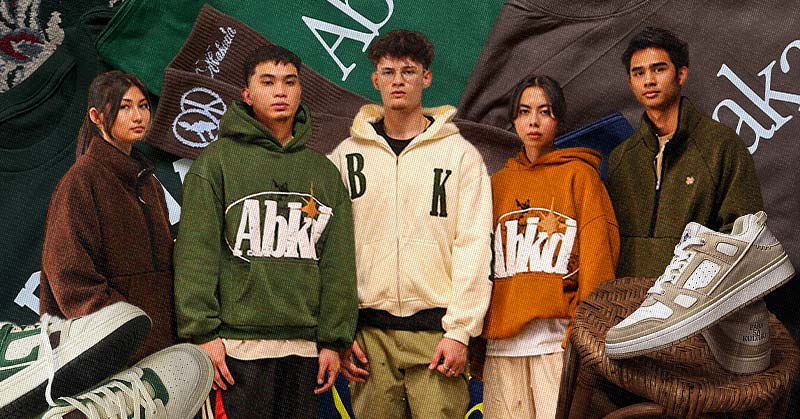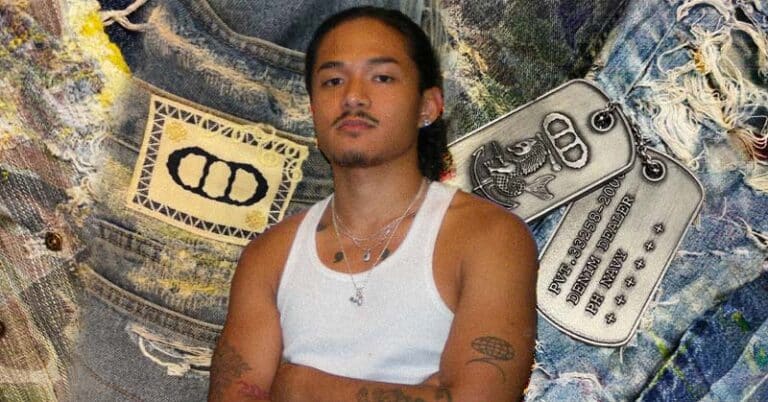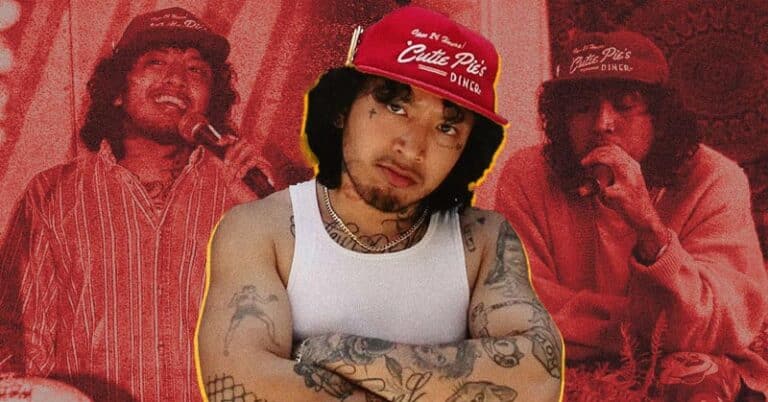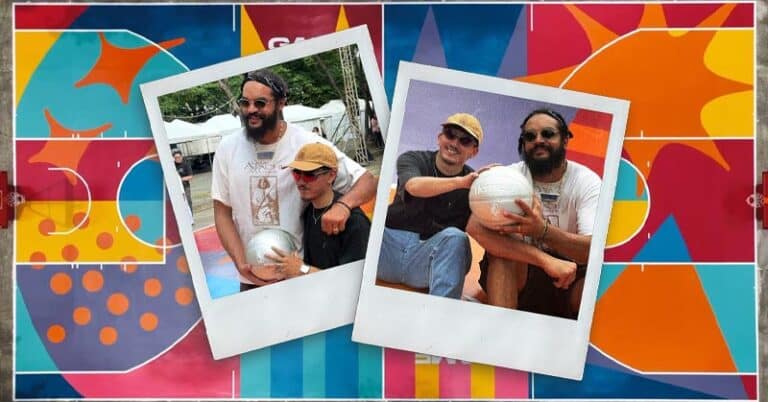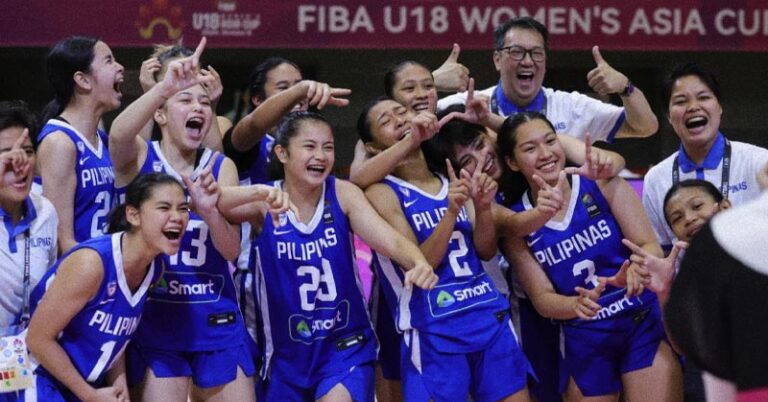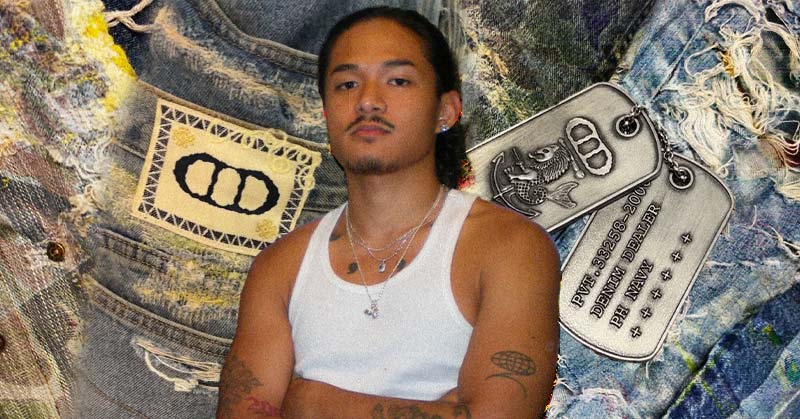Garments are powerful tools. Wielded carefully, they can birth impressions (good ones, ideally). They allow you to express a mood and signal intent. They’re also a repository of culture–from the weaving techniques that make up the fabrics to the colors, patterns, and accents adorning them.
In the hands of designers, they can also be cultural nodes–at which we can connect with cultures, those of others, and our own.
Arvin Boyon, 28, and Calvin Calma, 26, Kapampangans now based in Chicago, created their brand Abakada with the intention of creating a node for Filipino culture
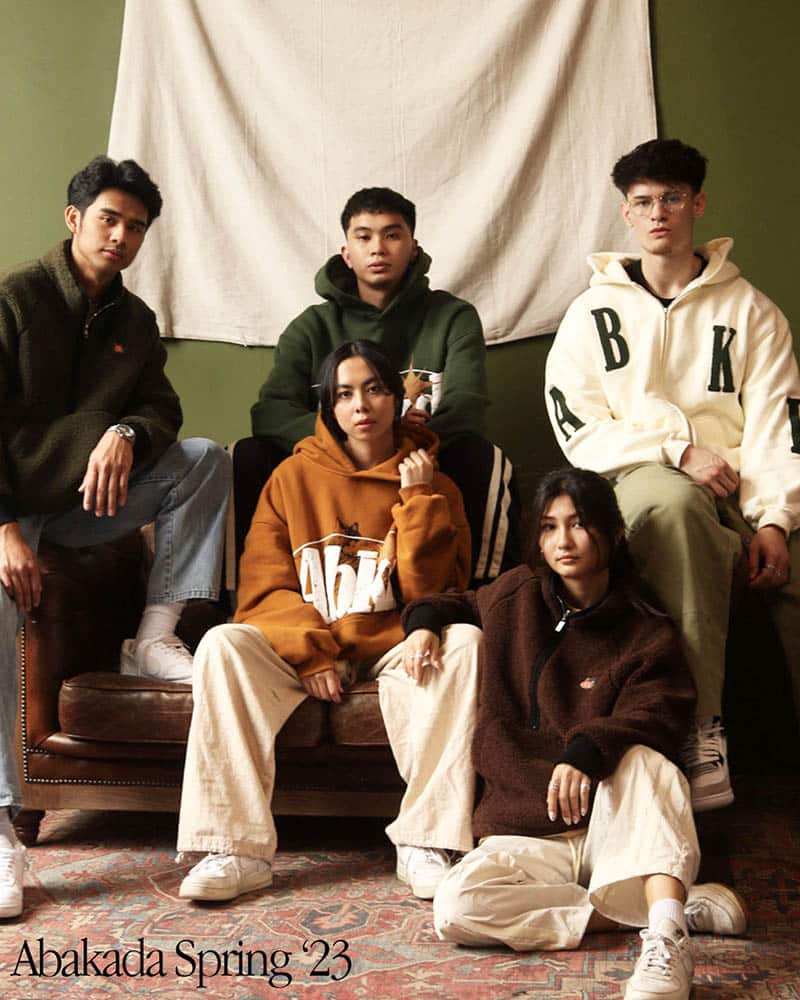
“Sa Pilipinas, dahil doon kami lumaki, ang first nila tuturo sayo ay ang mga abakada mo,“ [In the Philippines, where we grew up, the first thing we’re taught is the abakada]says Calvin reflecting on the origins of their brand name, which is the alphabet adopted for the Tagalog-based Filipino national language in 1940.
“Genesis siya ng learning mo,” [It’s the genesis of your learning] says Arvin. “That’s the first thing you learn.” The duo charges their garments with just that: as an introduction to Filipino culture.
The duo recognizes that “learning a culture” is a process and not an event. They fill their brand with motifs and texts that engage viewers with distinctly Filipino content–without being overwhelming.
Rather than dotting Instagram with yet another store selling an endless churn of new stuff, Arvin and Calvin are looking for the golden mean of a brand that marries highly wearable, beautiful pieces with a distinct and constant tether to their Filipino roots–-roots shared by a massive diaspora scratching toward a sense of where they’re from.
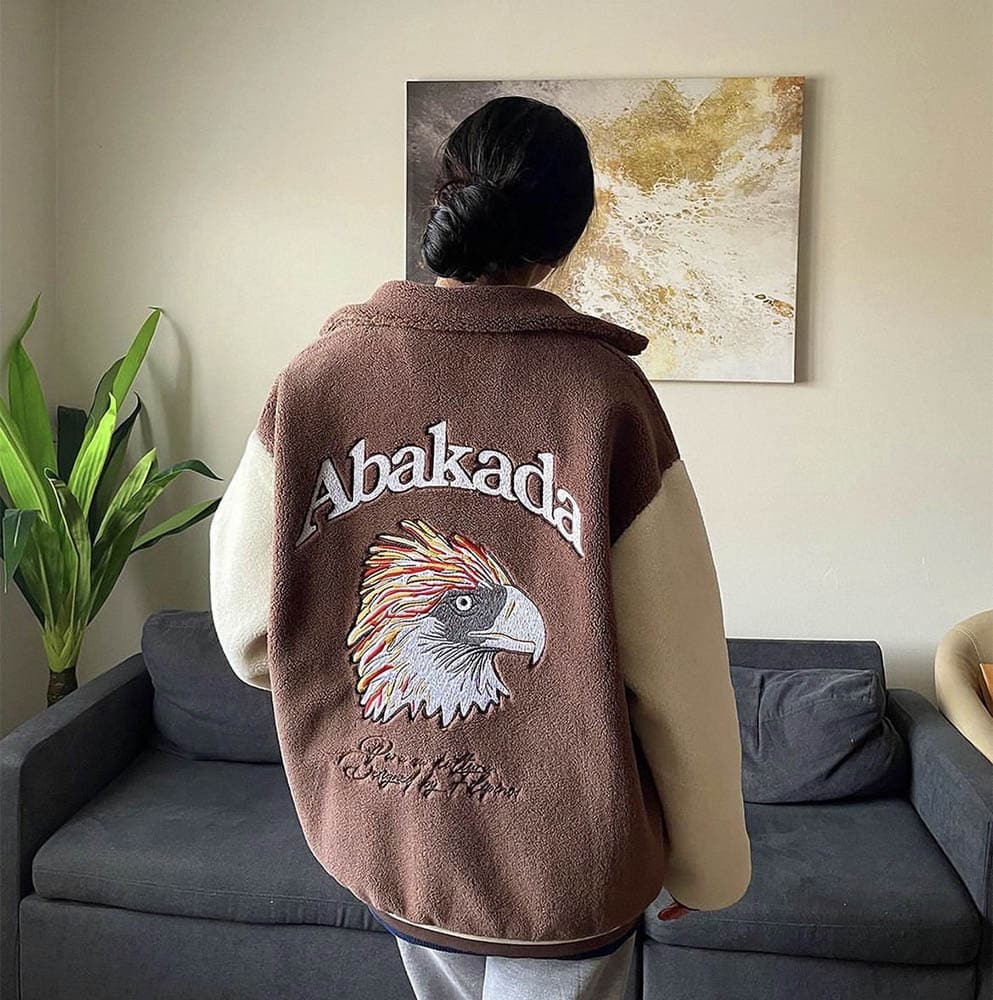
An open-arms approach to sharing culture
When Abakada was founded in 2018, they wanted to stray from the red, yellow, and blue that typically signaled Filipino roots. “We want to [share] pieces of our culture,” says Calvin. “Almost minimal.”
Arvin adds that Abakada doesn’t want to be exclusive to Filipinos. “We want it to be wearable for everybody.” Customers would ask about the clothes and the brand's origins, which become a gateway into the lesser-known aspects of being Filipino.
Abakada combines familiar streetwear silhouettes–big round-neck t-shirts, woolly sherpas, thick hoodies, and wide utility-style pants–with gentle nods to The Philippines.
Against a warm set of collegiate and varsity colors–think deep maroons, bog greens, creams, and mustards–gems of culture come in the form of Philippine eagle illustrations, elements of baybayin [Philippine script], graphics depicting festivities like tinikling [Philippine folk dance], and the regular appearance of the motto: “para sa kultura”
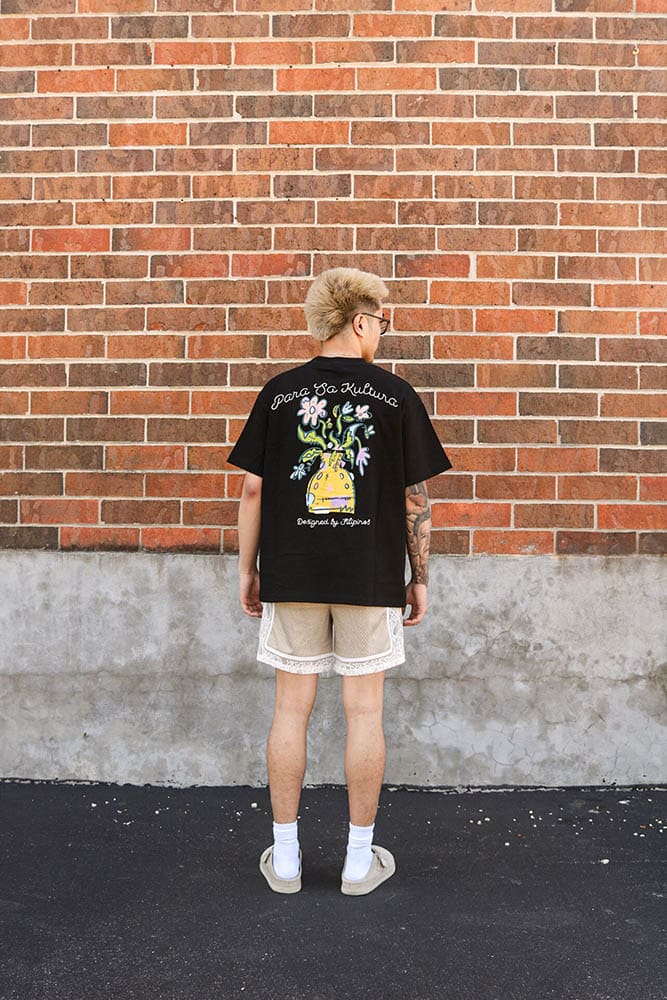
In celebration of Asian American and Pacific Islander Heritage Month, Abakada released a pair of sneakers expressing an Agila Low Succulent™, It features a stitching of green suede leather, a brown leather panel, and the brand motto.
It’s not the first time the brand has done something in limited quantities. These sorts of drops and collaborations have been a key component to Abakada’s reach to a wider customer base.
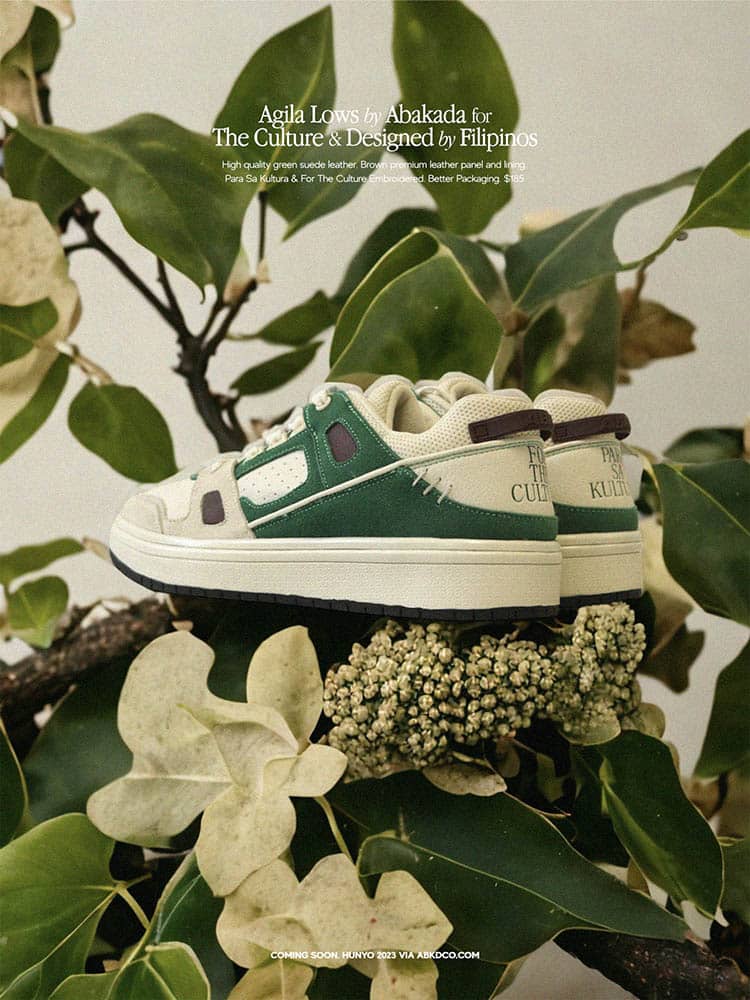
Arvin considers one of their most recent collabs, their March drop with Don’t Blame the Kids, as one of the brand’s biggest milestones. “I have been a big fan of them,” he says.
“I used to buy their stuff when I was in the Philippines.” The collab was a six-month process, from talking on Instagram to agreeing to create a product.
How two guys from Pampanga met in the U.S.
Arvin and Calvin moved to the United States at ages 19 and 13, respectively. “I started working in a Filipino grocery store,” shares Arvin, whose creative practice involved being in a dance group in the Philippines.
Though he moved to the US to pursue nursing, the creative bug bit again. “I was like, f— this s—. “I want to do my own thing.” He wanted to return to his roots, which “revolved around making art.”
Calvin, on the other hand, got into the sneaker scene a few years after moving to the US. “I’ve been in the sneaker scene since 2015,” he shares, “I've been reselling any hype stuff since then.”
Like Arvin, nursing was Calvin’s intended path but trekked back to being a creative.
Arvin looks at Calvin. “[He was] dating one of my friends,” he chuckled. “That's how we met.”
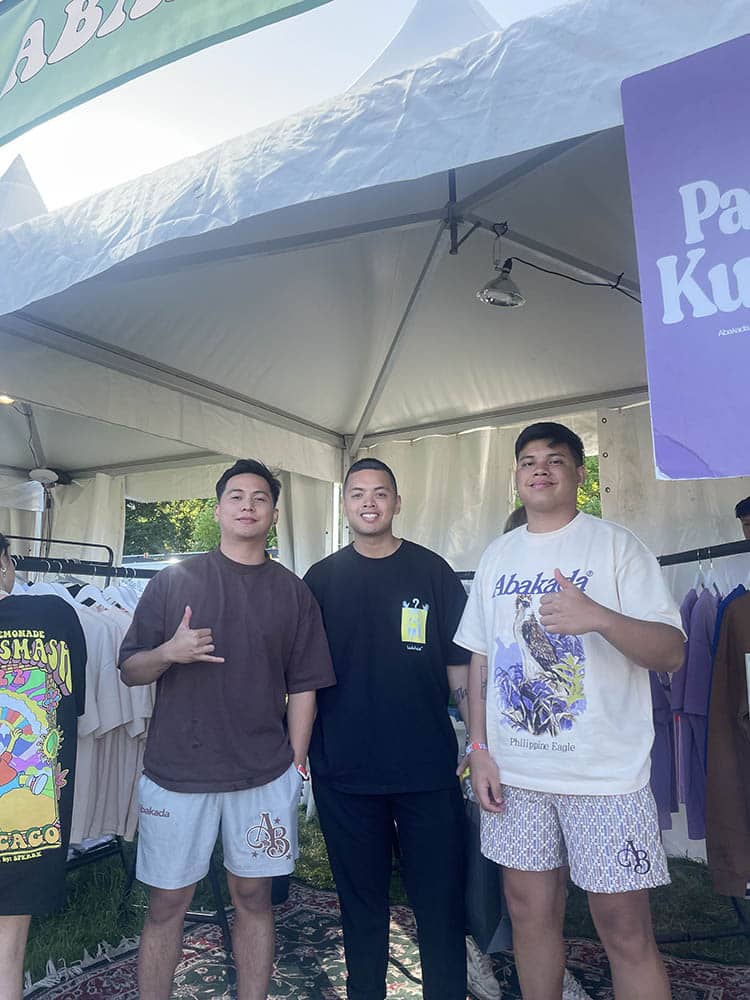
They weren’t close, but they were in a circle close enough to toss ideas around over beers at a gathering. They connected the dots around the idea for a brand, had a good night–ended it a bit closer.
“Then [the] next week, we're like, ‘let’s do this Abakada [brand],’” shares Calvin. They started as and still function as a two-man team, with Calvin using his knowledge from the sneaker industry on the business side while Arvin flexes his creative muscles.
Pushing through adversity
Calvin knew that Abakada’s first drop in 2018 was a shoo-in.
“[When you start] a business or your first drop, all your friends will support you,” he said. And sure enough, the brand’s debut did well.
Calvin knew that the same energy couldn’t be expected for the second. Even after the duo put in more time and effort – which included a lookbook – the result was a bust.
“Our profit was twenty dollars.”
“I took a thousand-dollar loan for an event just to showcase our stuff,” Arvin shares about a time in 2020. “After that, we went home broke.”
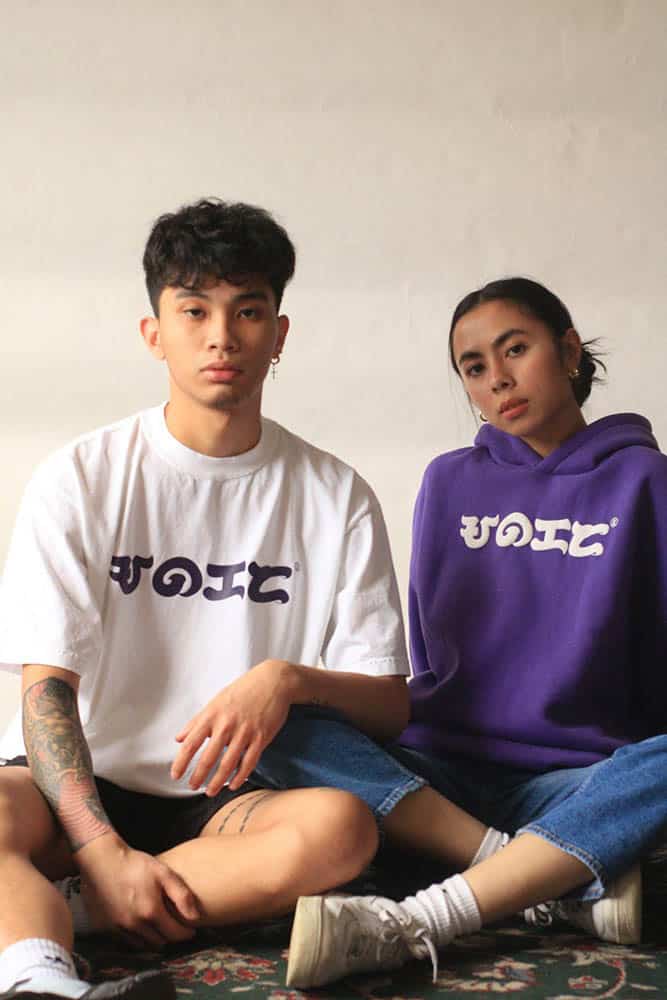
Relying on their nine-to-fives to survive, moving Abakada forward meant risks. Still, the duo developed a level of consistency, churning out collections honed on their ideal brand imagery.
Consistency paid off, and Abakada found its turning point in 2021. In collaboration with Filipino artist Solicole & Co., Abakada released the “Sun and Moon Collection.” It featured stunning ethereal depictions of Mayari and Apolaki– the moon-goddess of beauty and strength and the god of the Tagalogs and Pangasinan.
“[We hit] one-thousand orders in one day,” Arvin recalls his phone ringing almost non-stop with notifications from Shopify.
“That was [a] turning point,” he continues. “Broke na ako nun. I couldn’t even buy [a] burger.” Laughing about it now, Arvin recalls swiping his credit card only to have it declined. “I got shy. I was like, ‘I’m coming back’ pero di na ako bumalik.” [“…but I didn’t come back”]
Calvin theorizes that the pandemic helped the brand gain more traction. Everyone was at home, and the extra stimulus money made sending an order easier. “They were just on their phones buying stuff,” he shares.
Now, in 2023, they have an office and the same vision
Today, the founders have quit their nine-to-fives, and they’re working on the Abakada full-time–dropping new releases every month in the same pre-order fashion that’s worked for them over the last few years.
They’re looking for interns too.
They’ve come a long way from an apartment with a heat press. Calvin recalls fulfilling a 300 t-shirt order book for a Solicole drop. “[It was] four or five sa umaga, tapos nag-priprint pa kami tapos wala na kami sa mood, galit na kami.” [“It was four or five in the morning, and we were still printing, and we weren’t in the mood, we were annoyed.”]
Now they focus on the brand and marketing, leaving the production process to partners. Outside the U.S., Abakada also ships to Canada, the UK, Europe, and Australia.
But even with the growth, the pair’s bread and butter is still about sharing deeply held cultural values with their customers.
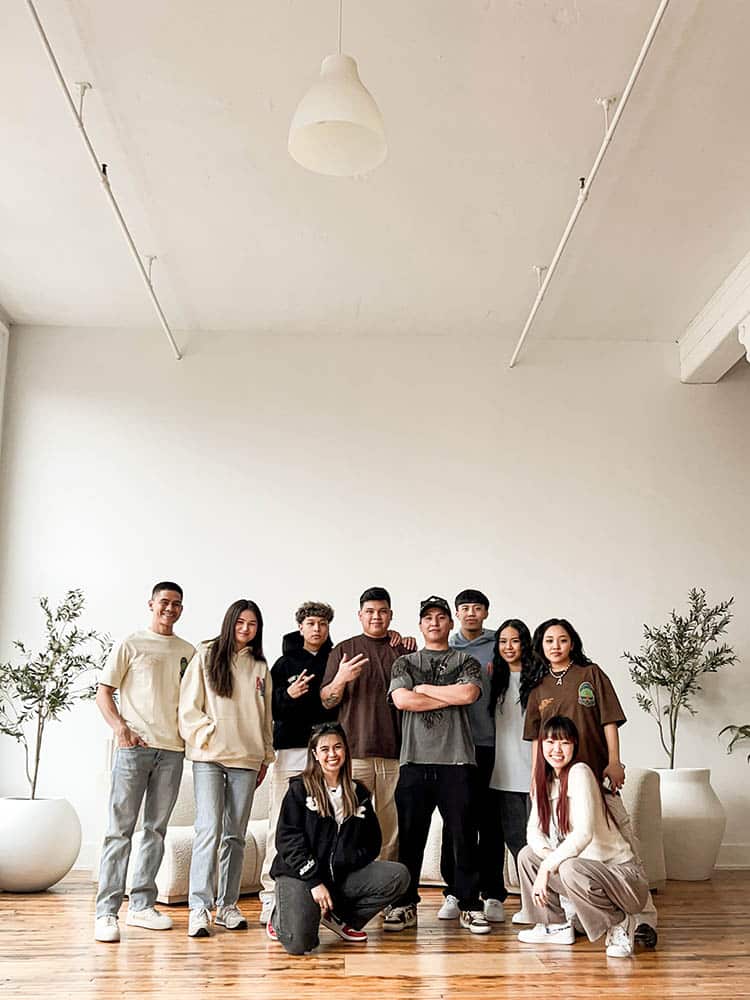
“Pag lumaki dito, minsan ang mga parents nila ayaw nila turuan ng Tagalog” shares Calvin on growing up as a Filipino in the US he shares, “Westernized ang lahat ng tuturo sa kanila.” [“Sometimes, parents here don’t want to teach their children Tagalog. Everything they teach is Westernized.”]
Arvin and Calvin see Abakda as a platform that allows folks to learn and participate in their rich culture– in bits and pieces, and incorporate it into their identity.
They’re adamant that the Filipino streetwear scene is underrated and that there is room for Abakada to become a representative of The Philippines–analogous to brands representing cities and countries.
It took years, plenty of work, and a few risks to get Abakada to where it is, but Arvin and Calvin, with their personal brand of humility and hustle, are looking forward to the challenge.
“You never know what’s out there for you,” shares Calvin.

